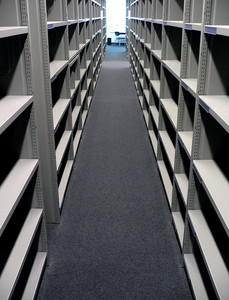What Can Be Said of a Non-Book?"I have always had a sneaking desire to write a non-review of a non-book. ... After all, what can be said of a non-book?"
—Frank Bechhofer, review of The Sociology of the Blue-Collar Worker by N. F. Dufty
A mention of "non-book indexing" led me to explore the current state of non-book literature. The first item I found was entitled
Energized Hypnosis: A Non-Book for Self Change. It promises to put the reader into a hypnotic state, automatically. (A marketing idea for computer manuals?) This non-book has received several five-star reviews, but then again, by definition the raves would suggest themselves, eh? One five-star review noted that, "For one thing, you don't have to do, think, or know anything." Finally--the act of reading made as mind-numbing as watching television! One three-star review had me in stitches:
I certainly didn't feel entranced, hypnotized, or otherwise 'sucked in' by the writing style. After reading the descriptions, I was expecting a much stronger hypnotic impact. Instead, I found it to be very much like a 'normal' book--with information introduced in a direct manner, with the occasional attempt at 'blowing your mind' with italicized suggestions, odd questions and unexpected statements.
I suppose I can agree that the market is saturated with "normal" books. And I agree that while italics can blow one's mind on an occasional basis, they become dangerous with long-term use. But to complain about directly communicated information?! (Going back to that line, "I certainly didn't feel entranced," imagine a bad review of a horror film saying, "It's bullshit -- I didn't puke even once!")
Trivia about non-books:
"Many times the cataloging record for non-book items is much longer than the record for books. This is due to the fact that there are more pieces of information needed in a non-book record. The physical description is often longer, and there are usually more notes that are useful or required in a non-book record" (Idaho's Alternative Basic Library Education Program).
"A non-book is a non-book is a non-book, even if it comes from the pen of a distinguished political scientist" (Lewis A. Coser, review of
Political Promises: Essays and Commentary on American Politics by Nelson W. Polsby).
"A publisher selling to a non-book retailer might well be asked to provide books marked with the Universal Product Code (UPC)" (Barcode-US.com).
"The non-book book is not a new phenomenon in publishing, but it has become more commonplace. ... A non-book differs from a book in several respects. It feels padded, reading more like a newspaper or magazine story in which a lack of time, adequate space, or brain matter keeps the writer from conveying complexity, perspective, gravitas. It trains its eye too much on today's headlines. And it too often prosecutes rather than explains" (Ken Auletta, review of
Hit & Run: How Jon Peters and Peter Guber Took Sony for a Ride in Hollywood by Nancy Griffin and Kim Masters).
"In dealing wlth a 'non-book collector' who has a rare and valuable volume, express surprise and enthusiasm" (Delmar French, NYT Review of Books and Art).



